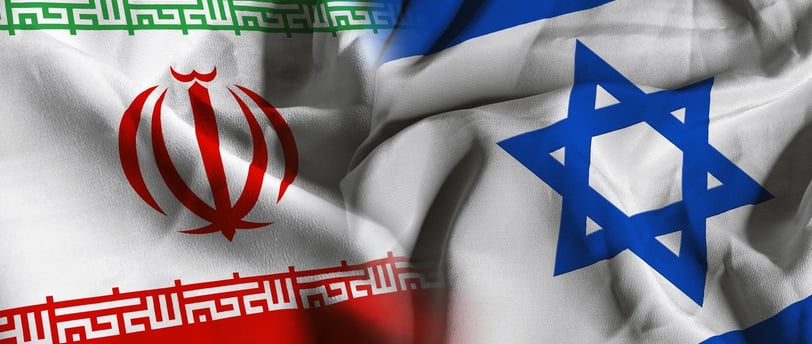Israel-Iran Conflict: Unveiling the Ripple Effects on Global Oil Markets and Investment Strategies
The escalating Israel-Iran conflict has profound implications for the global oil industry and economy. This article explores the conflict's impact on oil prices, the interplay between Iran's nuclear ambitions, terrorist activities, and Israeli military actions, the potential for regional tensions to escalate into a global conflict, and investment strategies to navigate this volatile landscape, while addressing the ethical considerations of profiting from war.
MACROECONOMYGEOPOLITICS
6/17/20252 min read


Introduction
The recent intensification of the Israel-Iran conflict has sent shockwaves through global markets, particularly the oil industry. Understanding the multifaceted impacts of this conflict is crucial for investors and policymakers alike.
Impact on the Oil Industry and Global Economy
The Middle East, especially the Strait of Hormuz, is pivotal for global oil transportation, with approximately 20-30% of the world's oil passing through this narrow passage. (forbes.com) The conflict has raised concerns about potential disruptions in this critical route.
Analysts warn that a prolonged conflict could lead to significant oil price surges. For instance, Bloomberg Intelligence and Bloomberg Economics projected that such an escalation could push oil prices to $150 per barrel and reduce global output by $1 trillion. (bloomberg.com) This scenario would exacerbate inflationary pressures worldwide, affecting consumer spending and economic growth.
Dynamics Between Iran's Nuclear Program, Terrorist Groups, and Israeli Attacks
Iran's nuclear ambitions have long been a point of contention, with Israel perceiving them as a direct threat. The involvement of Iran-backed groups like Hamas and Hezbollah in regional conflicts has further strained relations. Israeli military actions targeting Iranian assets, including missile strikes on Iranian oil facilities, have escalated tensions, leading to retaliatory measures from Iran. (forbes.com)
Risk of Escalation into a Global Conflict
The current situation mirrors the prelude to World War II, where multiple regional conflicts eventually led to a global war. The Russia-Ukraine conflict serves as the first major regional conflict, and the Israel-Iran tensions represent the second. The potential for these conflicts to converge into a broader global confrontation underscores the need for vigilant monitoring and diplomatic intervention.
Investment Strategies Amidst Conflict
Investors seeking to navigate this volatile environment might consider:
Energy Commodities: Investing in oil-focused funds like the United States Oil Fund (USO) can provide exposure to oil price movements.
Energy Stocks: Companies such as Exxon Mobil Corp. (XOM) and Chevron Corp. (CVX) are integral to the energy sector and may benefit from rising oil prices.
Precious Metals: Assets like gold often serve as safe havens during geopolitical uncertainties.
Cryptocurrencies: Digital assets like Bitcoin (BTC) can offer diversification, though they come with their own set of risks.
Conclusion
The Israel-Iran conflict presents complex challenges and opportunities. A comprehensive understanding of its implications on the oil industry, global economy, and investment landscape is vital for informed decision-making.
Stay updated with finance news and trends.
Contact
info@bullsandbearsblog.com
© 2025. All rights reserved.


